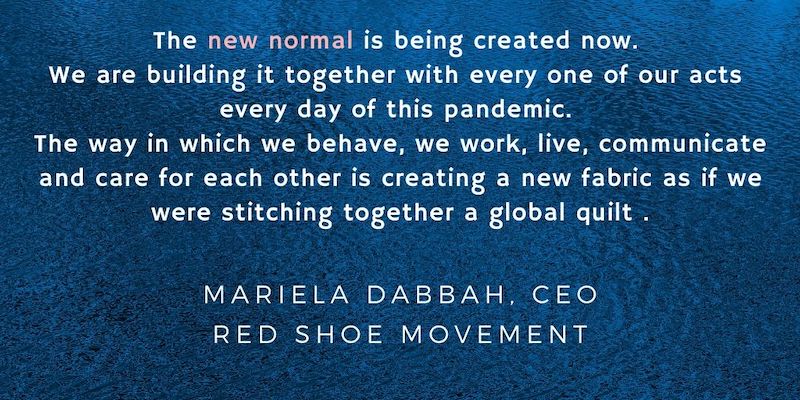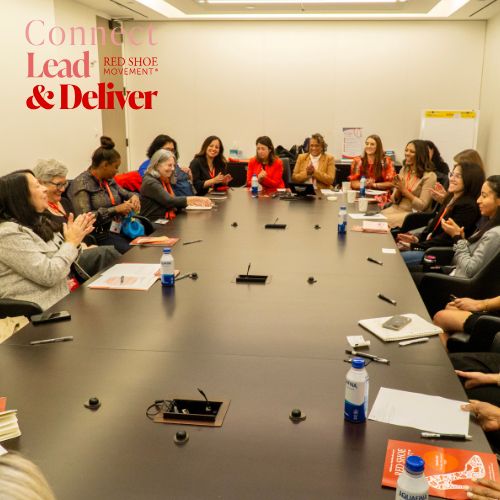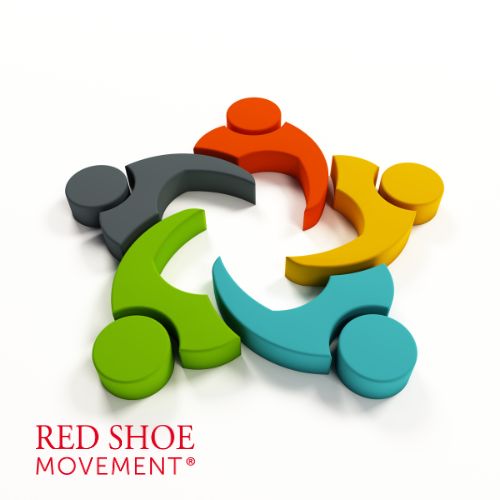Who would’ve thought that in such a short period of time the entire world would be thrown into the new normal?
Join me in imagining potential scenarios that may become part of the new normal. This is an invitation to ponder questions about the future of the workplace in order to trigger your own questions, hypothesis and ideas worth pursuing. The more you think about it, the better prepared you can be to influence your own role in what’s coming.

Creating the new normal where we can all thrive
It’s fascinating to see how quickly things change when there’s a pandemic. Have you noticed how overnight organizations and institutions have been forced to accelerate their timetables? Unlike what happened until now when different political agendas or conflicting interests interfered with progress, it’s quite possible that in the new normal things that have proven to work will be put into practice rapidly so that more people enjoy the benefits.
What about your company and your job? Will anything change?
A large part the planet is working from home right now. Regardless of what your job is, this experience will result in at least some changes. That may mean that you’ll have expanded responsibilities, that your division or business unit has been eliminated and you are asked to take on a completely different role, or that you’ll have the choice to work remotely more frequently. Without a doubt, this is a good time to learn new skills that you can apply in any new role. Showing that you’ve made productive use of this critical time by upskilling will play in your favor.
What to study? Start by review your skills, experience and education against the backdrop of the fields that are doing well and will continue to flourish when this is all over. For example: anything that makes life livable right now such as Internet providers, streaming services, virtual conferencing platforms, logistics companies, online retailers, anything to do with healthcare, mental health, entertainment, and so on. Spend some time considering: What other areas can you think about that will remain a necessity or will become a necessity when we are on the other side of this crisis?

Here are the kinds of questions that can help you explore areas of opportunity
- Will people be more or less likely to travel?
- In response to a long time in isolation, how will people’s spending habits change? Will they try to live a smaller, more controllable lifestyle or will they splurge on luxuries they were deprived of for a long time? Think about products and services that may become popular.
- Will people try to become more self-reliant or be ready to hire the services of others after a long time in isolation?
- Will people continue to order everything online or will they opt to do their food shopping in person and walk to their favorite boutique to try on the clothes they want?
- Will most K-12 schools become technologically savvy and finally enter the 21st century with an education model that is more aligned with kids’ real life outside of school or will they go back to traditional teaching?
- Will this accelerate the AI revolution or on the contrary, slow it down?
- Are there new opportunities to expand the shared economy? And what about the caring economy?
- Will there be new opportunities in exercise/sports that people can do on their own while still feeling part of a team
What aspects of the present will remain?
Companies have been forced to implement quick changes. I believe that as they prove to be useful, many of those changes are likely to become permanent. What do you think?
- In certain sectors, many companies will close their office buildings, now that the organization has verified that employees can be equally productive from home. Other companies may establish remote work as the default policy, as the software that helps people work in teams at a distance has now become a standard tool for companies big and small not only in the US but in regions such as Latin America.
- Having had to shuffle people around to cover different functions may help establish formal programs for associates to rotate roles in different business units so that the organization remains nimble.
- Perhaps seeing how useful it was to have certain people be able to deal with a wide variety of issues in an organization might encourage a return to generalists versus specialists.
- When I see how companies and the public sector tend to collaborate in times of crises, I can’t avoid being hopeful that at the end of the crisis at hand, that collaboration remains in place. So, I hope we’ll see an increase in cross-industry collaboration and in collaboration between competitors.
- Most likely, there will be an expansion of the gig economy. It’s likely that many of the people whose jobs get eliminated will opt to work for themselves. This will in turn create more opportunities for large organizations to interact with these individuals and new small companies.
- If you think distance learning was already a well-established sector, it will now be much more widely adopted. As more individuals and companies realize the convenience it offers, the ease of customization and the flexibility for everyone to study at their pace and at the time of their choice, online learning will offer many more options and formats. A sign of things to come is the high demand we are experiencing right now for our virtual leadership programs for female talent and for men: Step Up Plus and Step Up Men.
Gender equality may happen overnight
Here’s one of the great opportunities to make a change overnight taking advantage of the current situation.
Think about the following. For a long time, the double burden (of working full time and having to take care of the family) and the demand to be available anywhere anytime were two of the biggest obstacles for women to get executive positions.
Now, when almost everyone has experienced working remotely from home while quarantined with their families, both men and women from senior executives to support staff, suddenly, the playing field is leveled at least for a moment. Remote work is no longer an accommodation for women, or something they can do so at the same time they can take care of the family, but a benefit used across the board.
As everyone is home together, men and women working remotely and not able to get out of the house, it’s a great opportunity to renegotiate roles. Responsibilities previously thought to be women’s can (and should) now be shared more equally. This must be done in a deliberate way in order for the new roles to be clearly defined and to be long-lasting and not only temporary.
It may be the push we needed to shift social stereotypes. When both mom and dad are home and they alternate cooking, household chores, taking care of the kids, homeschooling and working remotely, suddenly, it’s hard to go back to the old ways. So, may this crisis give us the chance to come out on the other side a totally new society? It may.
We must also be observant of the possibility of the exact opposite outcome. That the likely economic downturn in most countries may create a conjuncture where women are expected to stay home again. When, because resources are limited and jobs fewer, the family needs to make a choice around who goes back to work and who takes care of the household and kids. And we go several steps back in terms of a gender inclusion at all levels in our organizations and institutions.
The new normal is being created now. We are building it together with every one of our acts every day of this pandemic. The way in which we behave, in which we work, live, communicate and care for each other is creating a new fabric as we were stitching together a global quilt. New social agreements, structures, priorities and values will emerge as a result. And as all of us will be changed by the experience it’s critical that all of us participate in the making of this new society.
Take this time to think about what future you want. Defining the new normal is everyone’s responsibility. Let me know your thoughts so we can keep this conversation going!





















































































































































































